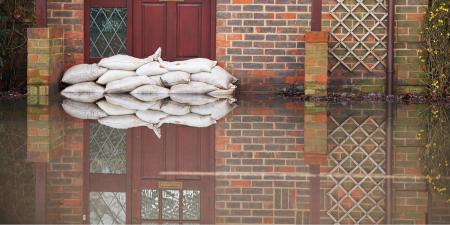Abstract
War and conflict are now common, lingering like an endemic disease in most countries of the Global South. Population displacement, infectious disease outbreaks, food and water shortages, damage to infrastructure, anxiety, and posttraumatic stress are among the phenomena to which clinicians are expected to respond as professionals. Yet curricula in health professions do not prepare trainees to cultivate the skills needed to develop intervention pathways to meet the needs of populations in conflict zones. This article argues that decolonization of curricula in health professions is key to preparing clinicians to respond with care and competence to vulnerabilities and disease burden exacerbated by conflict.
Colonialism and Conquest Permeate Medicine and Science
War and conflict are now spread among countries of the Global South like an endemic disease, resulting in population displacement, infection outbreaks, food and water shortages, and mental illness. Proper clinical management during and after conflict cessation is lacking, as curricula in health professions do not prepare students and trainees to respond to local population needs and disease burden, particularly in areas of protracted conflict.
In a stirring work of postcolonial science fiction, The Calcutta Chromosome, Amitav Ghosh illuminates the colonial roots of health professions education by unraveling the secret history behind one British physician character’s discovery that mosquitos transmit malaria.1 Another character, Murugan, was almost certain this physician was part of a larger plan to control lands targeted for British conquest (and the people in them) by using mosquitos to transfer human chromosomes. Writing against the hegemony of scientific discourse from the borders of his postcolonial position, Ghosh explains what we refer to as colonial education by showing how settlers manipulated Western allopathic concepts of medicine, science, and technology to promote British conquest.1 This article draws on this idea to argue for decolonization of health professions curricula to train clinicians in the practice of conflict medicine.
Conflict as Endemic Disease
Over the last 3 decades, the majority of implacable wars have transpired in the Middle East and North Africa (MENA) region and been perpetrated under the guise of democratization, a mantra used by wealthy nations that have stakes in these countries’ oil reserves or their strategic geographical locations. War and conflict are now defining characteristics of most countries of the Global South; armed conflict has continued in the MENA region since World War I.2 As one of the authors (G.A.S) said elsewhere: “This perspective contrasts with the humanitarian discourse of emergency and temporality.”2 He added: “During the civil war in Syria, humanitarian agencies came in with the language of emergency service and temporary conflicts. But we were witnessing patients who had, in the case of Palestine, repeated injury and re-injury within the same body of the same patient. In Iraq, injury was a social phenomenon.”2
Injured people and their injuries taught war surgeons that there is no such thing as a temporary crisis, a term still used in error by humanitarian agencies. Instead, war in these regions should be likened to endemic disease. Ceaseless conflicts in disaster areas give birth to other conflicts. When war becomes accepted and is incorporated into the lives of people living in conflict regions, conflict is indeed endemic and omnipresent. Yet characterizing conflict in this way can also be acknowledged as a product of colonialism, since endemic disease is a concept derived from colonial tropical medicine that is rooted in colonizers’ perceived need to make a region safe for occupation.3
The health consequences of conflict are numerous and can be immediate or delayed and direct or indirect. While population displacement, infection outbreaks, food and water shortages, compromised access to health services, and damage to infrastructure are immediate effects of war,4 anxiety, posttraumatic stress, and other mental illnesses can linger much longer than predicted,5 neither killing patients nor letting them live. In addition to health care system collapse, infrastructure decimation (eg, impaired sewage systems, clean water supply disruption) increases the number of displaced persons seeking asylum, and congregation of people in areas with poor sanitation and congested living conditions contributes to environments in which waterborne diseases thrive.4 A study conducted in Syria revealed that the DNA of microbes in areas of war has mutated, resulting in high rates of multidrug resistance among Syrian refugees compared to members of local populations, and that conflict hinders safeguards against antimicrobial resistance.6
If war and conflict were understood as endemic disease, health care in conflict zones would not be able to ignore the unique nature of what we refer to in the rest of this article as wound narratives: stories of why and where war and conflict occur and by whom or upon whom it is perpetrated. Wound narratives should be key parts of health professions education because they are inscribed on war- and conflict-wounded bodies at the times those bodies and persons are harmed and remain throughout a lifetime.7 Recent unconventional use of forbidden weapons in the Middle East (ie, Syria, Iraq, Yemen, and Palestine) is allowing for the emergence of not only new wound narratives but also new wounds and embodied experiences of those wounds that will linger and require healing.
When war becomes accepted and incorporated into the lives of people living in conflict regions, conflict is endemic and omnipresent.
In the MENA region, education of health professions tends to conform with Western, allopathic values without incorporating curricular content to build trainees’ skills to respond to needs of conflict-affected populations burdened not only by illness and injury from conflict in the region, but also by psychosocial and political factors that exacerbate their experiences of illness and injury. The same British physician fictionalized in Ghosh’s novel gave an address in 1899 in which he stated: “In the coming century the success of imperialism would depend largely upon success with the microscope.”8 This vision of prowess of the biomedical model, symbolized by the microscope, would guide the medical education, pharmaceutical, and scientific enterprises. Arts and humanities, however, are deemed less worthy than science, particularly in the Global South, and are “gradually losing status and influence.”9 At a time when we need to extend the influence of arts and humanities in health care, we instead see universities “learning from the business and commercial world today … how to develop a customer perspective,”10 a curricular approach that must be transformed in order for trainees to be prepared to meet the needs of those living in areas of endemic conflict.
Decolonizing Curricula
Decades after many countries of the Global South gained autonomy, postcolonial thinking still governs their health professions schools’ curricula. A contemporary example of how these countries’ medical education has fallen under the spell of colonial education is that medical schools continue to measure their success by the number of physicians who practice in the Global North and West and by their subspecializations (eg, in robotics or artificial intelligence). An obstacle to developing health care in the Arab world, for example, is that, concomitant with rise in the nature and number of injuries over the past 2 decades, clinicians have emigrated to wealthier, more profitable regions of the world. International educators and organizations in health professions might, in response, consider drawing upon the example of Paulo Freire to encourage early-career clinicians to practice in areas of great need, such as those with endemic conflict.
When he was secretary of education for São Paulo, Freire declined support from the World Bank to carry out educational reforms—and told the mayor that he would quit if the loans were approved11—to avoid assuming a personal role in exacerbating “increased inequality, decreased democracy, and ecological degradation”12 on an international scale. Conflict medicine training, especially in the Global South, needs to be deterritorialized and reterritorialized because, as noted in Shaull’s preface to Freire’s Pedagogy of the Oppressed, there is no such thing as a neutral educational system.13 Freire’s work stipulates that critical education must break from a historically entrenched, colonial master narrative to focus on local needs, cultures, and ecologies and help the oppressed recover their sense of humanity. Freire operates on the premise that politics cannot be divorced from education; curricula (overt and hidden), pedagogy, and assessment serve political agendas.13 What we suggest here is that educators in health professions must cultivate awareness of whose agendas those are and how they are being asked to motivate them.
Local Determinants of Health and Healing
In the Global South, wounds are political, and so is education. Curricula that delete anticolonial content, for example, deserve attention here. Neglect of international contributions to medicine and its origins expresses an impoverished conception of knowledge that Freire problematizes. Freire questions knowledge transfer practices that position one person as a knower and another as knowing nothing, suggesting that knowledge itself is “a gift bestowed by those who consider themselves knowledgeable upon those whom they consider to know nothing.”13 Education must go beyond mere transmission of information, and health professions education, specifically, should be enriched via what Freire calls a “dialogical process” that centers community concerns, generates dialogue, and seeks to awaken critical consciousness.
Such a reorientation of health professions education would also likely trigger educational imagination, particularly needed in times of protracted conflict and in war zones. Decolonizing curricula in health professions to reflect local needs and vulnerabilities is vital to teaching healing as service. Freire’s views of education allow room for service-learning curricula that illuminate needs of people in regions affected by conflict. Clinicians should be sensitized, experientially and dialogically, to psycho-socio-political determinants of health. Clinicians must also appreciate that endemic conflict needs eradication through decolonization of science and medicine. Educators in health professions should develop conflict medicine programs that do not replicate International Red Cross and Red Crescent Movement14 or World Health Organization Academy15 teachings but rather privilege the lived experiences of people in conflict zones with close attention to their wound narratives.
Education is what William Walters and Barbara Lüthi call a “cramped space” that registers “degrees of deprivation, constriction, and obstruction, but always and simultaneously a concern for the ways in which such limits operate to stimulate and incite movements of becoming and remaking.”16 In order for experiential learning and curricular imagination to flourish, 4 hurdles need to be overcome: (1) failure to appreciate that conflict is endemic to many regions of the world, (2) lack of will to reform colonial practice and pedagogy, (3) lack of adequate curricula, and (4) lack of funding. These obstacles, which prominent in the Global South, can perhaps be summarized by what Atul Gawande noted in Complications: A Surgeon’s Note on Imperfect Science: “We want perfection without practice. Yet everyone is harmed if no one is trained for the future.”17
References
-
Ghosh A. The Calcutta Chromosome: A Novel of Fevers, Delirium and Discovery. Ravi Dayal; 1996.
-
Abu Sittah G, Dewachi O, Al-Tikriti N. The evolution of conflict medicine in the Middle East—an interview with Ghassan Abu Sittah. Middle East Rep. 2020;297:2.
-
Arawi T, Abu-Sittah G. War as an endemic disease: towards a new paradigm shift. In: Laher I, ed. Handbook of Healthcare in the Arab World. Springer; 2020:1-16.
- Bizri AR, Fares J, Musharrafieh U. Infectious diseases in the era of refugees: hepatitis A outbreak in Lebanon. Avicenna J Med. 2018;8(4):147-152.
-
Fares J, Gebeily S, Saad M, et al. Post-traumatic stress disorder in adult victims of cluster munitions in Lebanon: a 10-year longitudinal study. BMJ Open. 2017;7(8):e017214.
-
Abbara A, Rawson TM, Karah N, et al. A summary and appraisal of existing evidence of antimicrobial resistance in the Syrian conflict. Int J Infect Dis. 2018;75:26-33.
-
Abu-Sittah G. The political capital of war wounds. In: Lutz C, Mazzarino A, eds. War and Health: The Medical Consequences of the Wars in Iraq and Afghanistan. New York University Press; 2019:137-151.
-
Ross R. A garbled quotation. Ind Med Gaz. 1900;35(12):491. Accessed September 30, 2021. https://www.ncbi.nlm.nih.gov/pmc/articles/PMC5152371/pdf/indmedgaz71415-0037c.pdf
- Lynch K. Neo-liberalism and marketisation: the implications for higher education, European. Eur Educ Res J. 2006;5(1):1-17.
-
Maringe F, Gibbs P. Marketing Higher Education: Theory and Practice. Open University; 2009.
- Kempner K, Loureiro Jurema A. The global politics of education: Brazil and the World Bank. Higher Educ. 2002;43(3):331-354.
-
Hursh D. Neoliberalism. In: Gabbard D, ed. Knowledge and Power in the Global Economy: The Effects of School Reform in a Neoliberal/Neoconservative Age. 2nd ed. Lawrence Erlbaum Associates; 2008:35-44.
-
Freire P. Pedagogy of the Oppressed. Penguin Education; 1972.
-
New e-learning module for health-care professionals. News release. International Committee of the Red Cross; October 2014. Accessed July 19, 2021. https://www.icrc.org/en/document/new-e-learning-module-health-care-professionals
-
Training for emergencies. World Health Organization. October 31, 2018. Accessed July 19, 2021. https://www.who.int/emergencies/training
- Walters W, Lüthi B. The politics of cramped space: dilemmas of action, containment and mobility. Int J Polit Cult Soc. 2016;29(4):359-366.
-
Gawande A. Complications: A Surgeon’s Notes on an Imperfect Science. Picador; 2002.



